Join me as I repair one of my all-time favourite pieces of hi-fi equipment, the astonishing Accuphase DP-90 CD player.
Welcome back everyone, for variety we’re talking about classic CD players again today, and this one is dear to my heart as I own one of these beauties – the incredible Accuphase DP-90 Precision Compact Disc Player, to use her correct title.
Before we continue, though, I’d like to extend my sincere thanks to all customers, readers and friends of Liquid Audio who appreciate and support my efforts here. I’m fortunate to have so many great customers, industry colleagues and friends of the business. Good people like all of you are why I continue to do this 🙂
Background
This Accuphase DP-90 (and matching DC-91 DAC) purchase and subsequent repair came about in mid-2024, from a customer who initially purchased a consultation where we discussed a few considerations, including the pros and cons of him obtaining an Accuphase DP-90 and the Accuphase DP-91 DAC.

This is a personal story for me because I own an Accuphase DP-90 and DC-91. They were the top-of-the-range digital products from Accuphase at the time, and that means the top products available, along with just one or two others. They were always my aspirational digital purchase, since learning about them many years ago.
I’ve written a little about them, with more to come. My customer read that and, after our discussion about this series of equipment, decided he had to have a pair. He already owned a nice Accuphase preamp, a C-260 from memory, and very much enjoyed it, so this was confirming something that he suspected would be good, and I was able to give him a bit more inside information about this rarer than hen’s teeth combo, from an owner’s perspective.
To cut a long story short, my customer bought a pair from a seller in Germany. They arrived reasonably well-packed, and both powered on, but the DP-90 wouldn’t read discs. This could have been catastrophic, but thankfully, I was able to repair this for him, and that brings us here.
Where I can spare the time, I make an accompanying video. You can watch that here:
Top-Tier
Early 1990s Accuphase equipment is some of my favourite. Accuphase were ramping up build quality in a way no other manufacturer was. My former reference, Accuphase C-280V, was part of this shift, many kilograms heavier than the already excellent C-280L that preceded it, but with even higher build and parts quality. My current C-290 is part of this new series of extreme gear, likewise, the C-290V, like this one I serviced recently:

These are all absolute end-game statement pieces, even now, but in 1995, one can only imagine the attention the DP-90/DC-91 pair received, costing more than a decent car at the time. The Accuphase DP-90 cost a cool $7,495 USD in 1995, equivalent to around $15,000 USD now or $22,500 AUD, based on the wallet inflamation calculator I use 🙂
The matching Accuphase DC-91 DAC is even more outrageous, costing $13,495 USD in 1995, equivalent to around $28,000 USD now or $41,650 AUD. This is equipment so otherworldly compared to what $2,000 – $4,000 buys you these days that it’s truly comical. Once you’ve seen, heard and delved inside pieces like this, it’s staggering to consider what you can buy them for now.
For many, this is the pin-drop moment with this S-tier equipment, no matter when it was made. The problem with equipment like this is its scarcity. Hardly anyone has ever heard, let alone owned pieces like these, so very few can speak with any authority about them. There are certainly only a handful of Accuphase DP-90 / DC-91 owners in Australia. Let me know if you are also one!
These two, of course, have great specs and unmatched engineering, but the proof is in the listening. I’ve never heard CDs or streamed files sound better, and I hear a lot of equipment. The DP-90 crushes as a transport.
Accuphase DP-90 vs DP-90B
I should clarify that my DP-90 is the later, improved and even rarer Accuphase DP-90B. These things are unicorns, so buy one if you find one. How can you tell? Well, I learned that only through research after noticing one day that the characteristic early-90s slab-faced design on the DP-90, DC-91, C-290, etc, was subtly different on my DP-90.

My player, if you look closely, has a rounded-off bottom edge to the front fascia. This was brought in towards the end of the ’90s and the DP-90B was one of the last of this extant series of equipment to feature the softer new fascia design, before much less loved DP-100 and DC-101 landed.

Having worked on my DP-90B and a couple of other DP-90s, I can confirm that the DP-90B has improved processing and lacks the kludges visible on the earlier boards. Kludges, on Accuphase’s most expensive gear? Yep, kludges are common, especially on early iterations of low production volume equipment.
Features
The Accuphase DP-90 is technically a transport, meaning that it outputs a digital signal, rather than an analogue one. To use the DP-90 or any other transport, you’ll need an extraordinarily good DAC, ideally an Accuphase DAC with HPC connection, a server-grade glass fibre BNC-style connector and 150MBPS spec far ahead of what Toslink can offer.
I’ve used two very good DACs with my DP-90, my previous Gustard A-26, which I rate highly and was a superb-sounding DAC, and my current, matching Accuphase DC-91, which sounds noticeably better, despite being 30 years older. I’ll leave you to ponder that incredible fact, but if you ever see, hold or hear a DC-91, which unfortunately most won’t, you’ll understand. Then you’ll question all the constant ‘improvements’ we’re told so much about.
You have to experience this epiphany for yourself, of course, but I’ve written about how and why CD transports sound different from one another, and why vintage CD players and DACs can be such great buying. Oh, and if you think they must be making better lasers and transports now, you’re wrong. This was the peak of laser and mech quality and engineering, though good transports and lasers still exist.
You can read more about the Accuphase DP-90 and DC-91 in this excellent Stereophile review. Stereophile raved about this pair, and from what I’ve heard, I completely agree. Here are some more features:
- HPC (High-Performance Connection) for the lowest possible jitter (it is audibly better)
- Built-in RF amplifier in laser pickup to minimise the effects of interference
- Balanced drive circuit that does not depend on the ground for servo motor drives
- 8mm thick solid aluminium chassis structure and panels
- CD mechanism with sapphire spindle bearings and magnetic slides that guarantee durability and reliability
- Auto-locking mechanism to prevent tray resonance
- Gold-plated Teflon PCBs with an emphasis on sound quality
- Dual power transformers
- Multifunctional remote commander
The Accuphase DC-91 DAC is even more extraordinary with its 16 PCM-63K hand-selected DAC chips PER CHANNEL – 32 in total! I will go into more detail on the DC-91 in a later article; otherwise, I’ll never get this article written!
Accuphase DP-90 Specifications
| Type: | Redbook CD transport |
| Laser: | Sony KSS-272A (Sony’s best) |
| Transformers: | 2, 1 for laser, spindle and servos, 1 for DSP, display and CPU functions |
| Digital output types: | HPC Optical 150MBPS (the best, server-grade glass fibre, what I use) HPC Balanced (AES/EBU) (better) Optical (Toslink) (good) Coaxial (75 Ohm coax) (good) |
| Dimensions: | 479mm W x 149mm H x 379mm D 18-3/4 W x 5-7/8 H x 14-15/16 D |
| Weight: | 20.5kg / 25.5kg in box 49.7lbs / 60.6lbs |
| Years produced: | 1993 – 1998 |
Service & Repair
As mentioned, my customer purchased his Accuphase DP-90 and DC-91 from Germany. Both arrived seemingly unscathed, until he tried to play some CDs. The loader wouldn’t open, a common issue with CD players, no biggie here. A bigger deal, though, when he did finally get it open, was that the player wouldn’t read CDs.
This, my friends, is a scary moment for all who’ve experienced it, or something like it. It can mean any one of many issues is present, including the worst of all in the case of the DP-90 – a dead laser. In this case, though, the loader needed service, and the spindle that holds the discs, a superbly machined stainless steel affair resting on a sapphire ball bearing, had come loose.
This meant the disc and spindle were fouling the laser, so that the laser could not ‘park’ itself. It also meant that the disc would not spin up as it was not being gripped properly by the disc platter. It also meant that focus could not be achieved. Thankfully, I resolved this issue for my customer and cleaned and serviced the player for him. Let’s take a look.


On the left, we have two large potted transformers, one for the laser and one for the control circuitry and processing. In the middle, we see 8 large filter capacitors, with a combined capacitance greater than many modern amplifiers. Below them, we have the legendary Sony KSS-272A laser in its own compartment. To the right, we have two large and super high-quality gold-plated PCBs. A large motherboard sits below all this and links everything together. The chassis structure and build quality are superb, down to the fasteners and wiring. Accuphase always does things this way.
This is simply without peer, and yes, I’m including all the names you are thinking of, and many you are not.











A note on this repair technique: In terms of setting the correct platter height, there is a precise specification for this, typically X mm +/- 0.1mm. There is also a way to relocate the platter into its original position, in many cases, through careful use of ‘feel’ and the right tools. It doesn’t always work but it gets easier with experience.
In terms of laser cleaning: Don’t ever touch the laser optics, ie the lens, unless you absolutely know how to do that WITHOUT harming them. I’m not going into detail here, but most of what you read about cleaning lasers is wrong and often results in failure due to impaired optical performance or damaged lens suspension. That, of course, cannot happen here, under any circumstances!


Results
I’m extraordinarily pleased to say that I was able to repair this epic Accuphase DP-90 for my customer and he’s been enjoying it since then. I believe he plans to bring it back to me for some additional work, but this was a really good save on what could have been technically a write-off, in the wrong hands, and believe me, this happens.

I’m fortunate to have been given the opportunity to repair this one and stocked to own the ever-rarer DP-90B. I know her owner absolutely loves this player and I’m sure it will give him many more years of enjoyment.

To replace a treansort like the Accuphase DP-90, you’d need to look at something like the Accuphase DP-1000, the modern functional and marketplace equivalent. These cost a cool $32,500 AUD.


Review
The Accuphase DP-90 is superb, the best transport / CD player I’ve ever heard. I’m sure there will be people reading this and thinking: “Ah, but Mike, the dCS Rossini is better…” and you know what? Maybe it is, but those things are 40K AUD, and my DP-90 cost me 3 grand. I bet it will last longer, it’s still running perfectly 30 years on, AND it’s heavier!!!
Anyway, I highly recommend these and encourage folks interested in Redbook CD playback to consider one.

Thanks!
Thanks for visiting, and I hope you enjoyed this article on a piece of equipment very few have written about. If you found the article informative, I encourage you to like, share and subscribe.
If you’d like me to service or repair your Accuphase DP-90, or any other beautiful Accuphase CD player, you are always welcome to contact us.
Discover more from LiQUiD AUDiO
Subscribe to get the latest posts sent to your email.



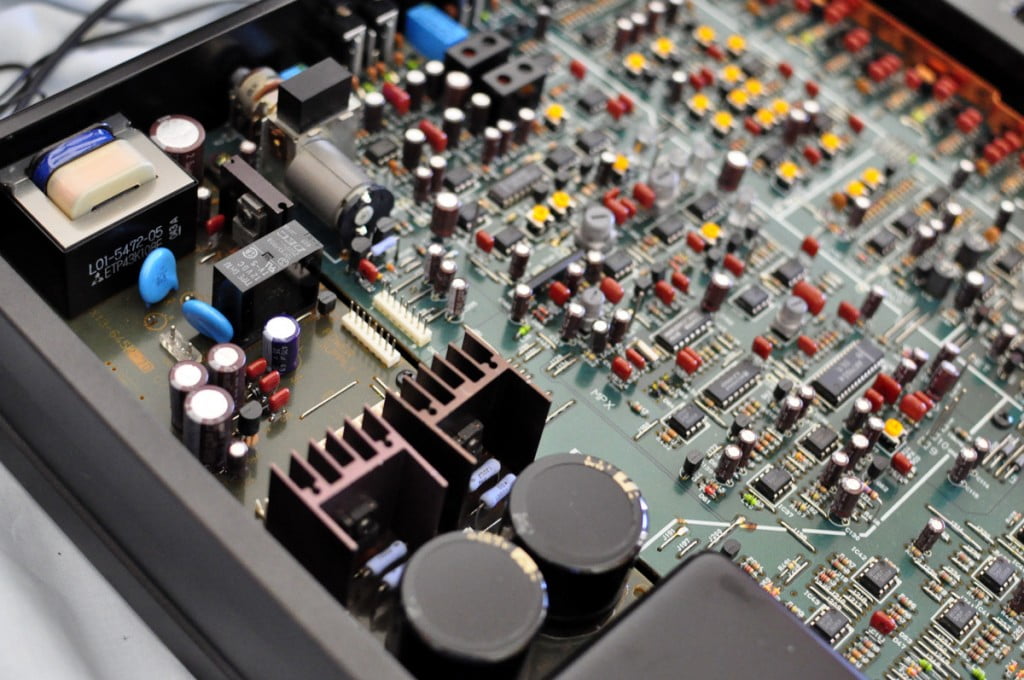
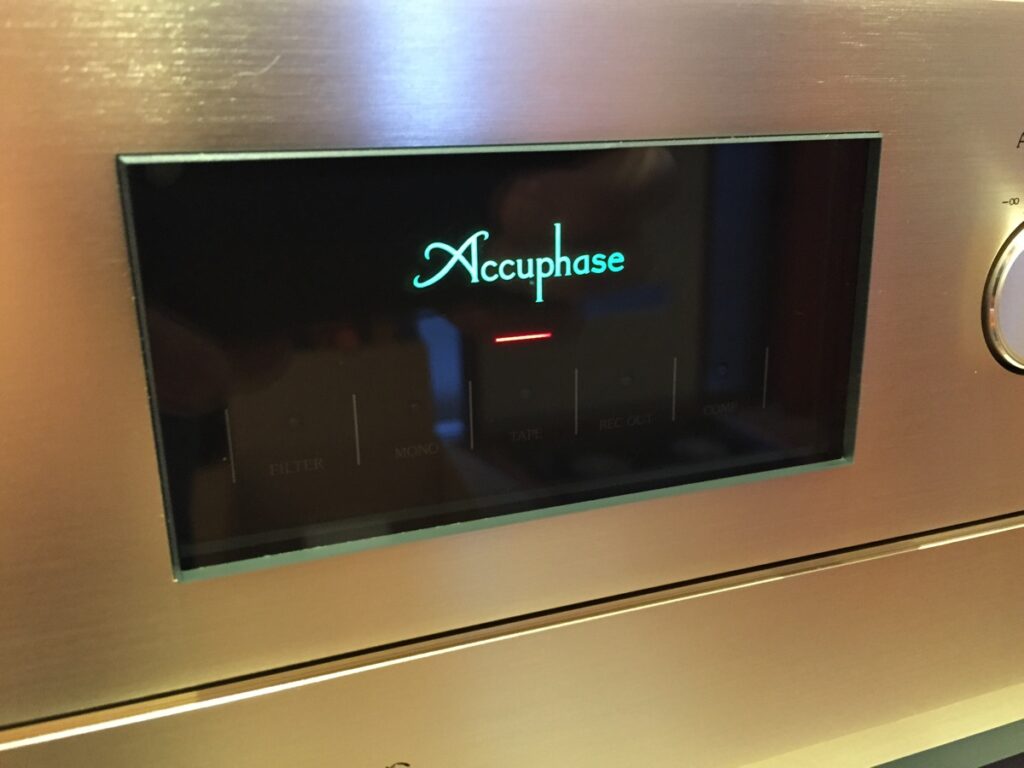
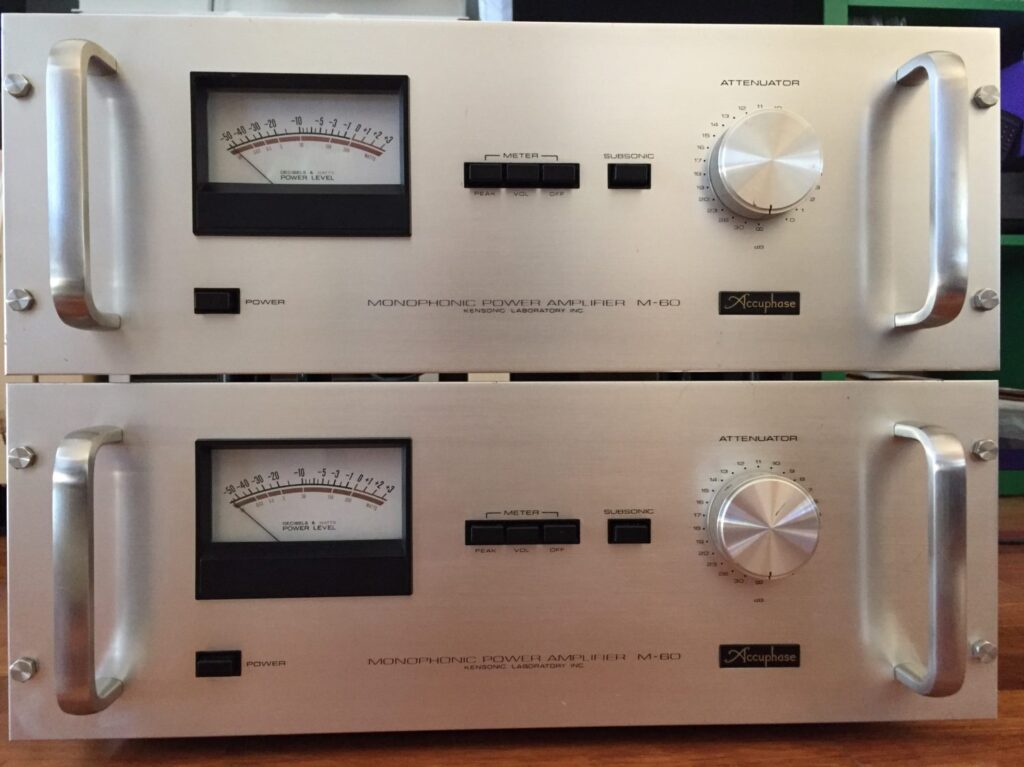
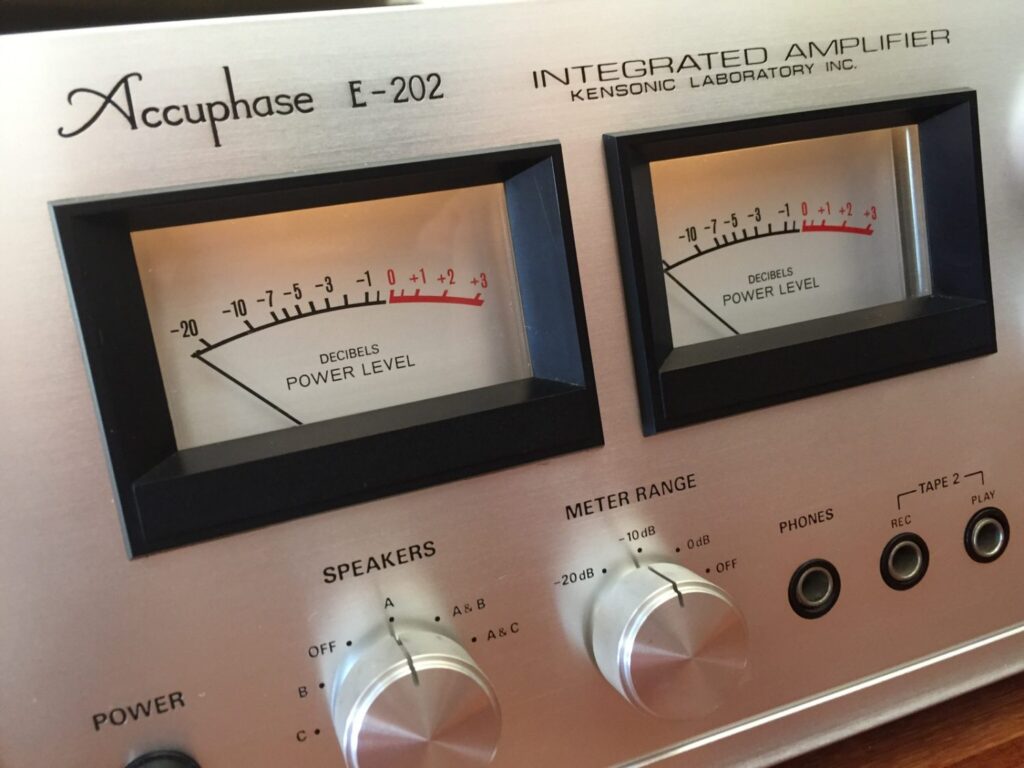

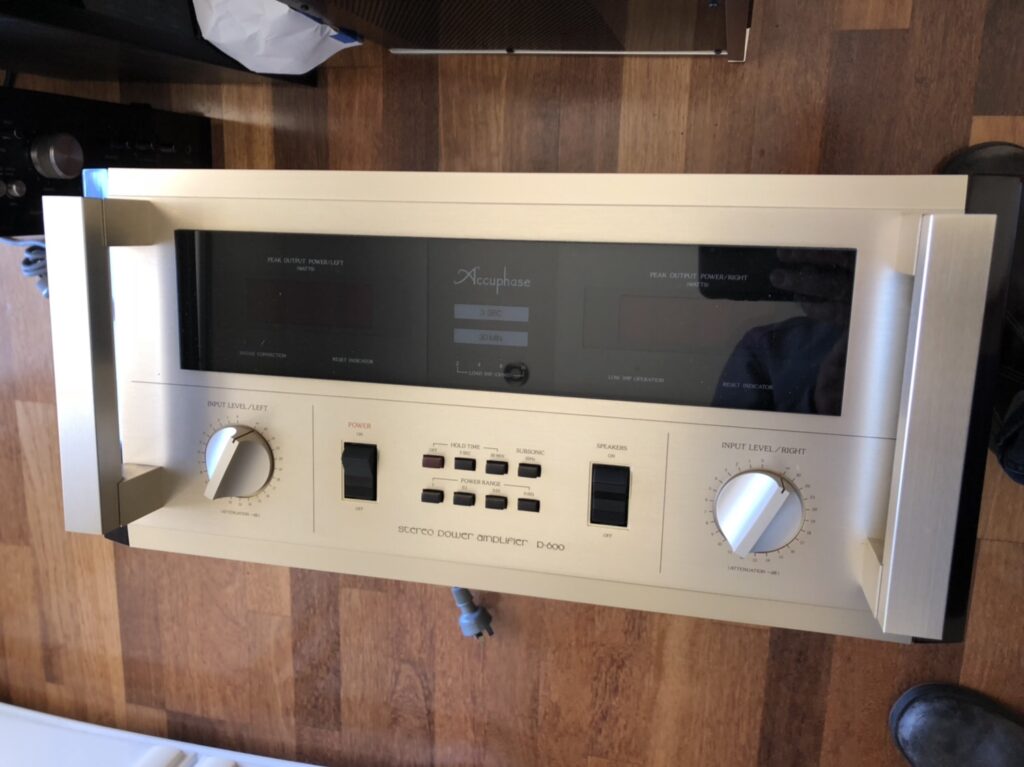
Loved your post on the Accupahse CD player
If only I had the money to buy one of those new or used ….
Fantasy coming to reality if only for a moment
Thanks Rod, these are lovely machines for sure. I never thought I would own one either, but the secondhand market is so good for stuff like this now. You should do it!
Bugger. I excitedly began reading, in the hope that you had a secret source for a laser for one of these bad boys. I have one languishing in the workshop, in the hope that a laser will magically appear.
Thanks, Trevor, and I know! Thankfully, we didn’t need one here. There is a guy installing new laser diodes into existing lasers with some success. I think he is in the Netherlands, from memory.
Yeah, I’ve thought about replacing the laser diode, but it certainly requires a learning curve. The machine is probably worth it. I hadn’t thought that someone would be doing commercially, but it makes sense, given the fact that some of the old machines were expensive and finding a good CD player today getting very difficult. For me, I’ll stay with my Marantz CD80 for now. Fabulous sounding player.
One of your best reviews Mike
Really enjoyed seeing an article on high end gear
If only the bank balance allowed me to own one of these
Still your article allowed me to dream
Well done
Thanks Rod, you’re a legend, I hope you get better soon, rest up!
Hey Mike – awesome gear! And nice write up – I enjoy reading them.
Love my Accuphase stuff (have an e-405 and e-206 running JBL bookshelves) but as you note, the DP-90 / 91 is practically unobtamium. Do you have any thoughts on the marginally less unobtamium DP-70v, DP-75 or other similar era Accuphase integrated players?
Hey Nicholas, thank you, and write-ups like this are aimed at people like you who appreciate them! You have a lovely set-up there, and yes, the 90/91 pair are hard to find, though they are out there. I touched on the DP-75 here: https://liquidaudio.com.au/faq/whats-better-an-older-cd-player-or-a-new-one/. I love the DP-75 as it is from the same era as the 90/91 and is basically a scaled-back combination of the two. It’s a superb integrated CD player, better than the DP-70V, which is also a great player. Don’t forget the DP-80L/DC-81L, excellent value, I love that combo and the R2R DAC aspect. They sound awesome too, quite unlike other early CD equipment. The DP-75 is a great sweet spot though. Just watch out for the lasers!
Thanks Mike, appreciate the reply. I didn’t realise the DP-75 was basically the DP-90/91 integrated. I’ll keep an eye out now!
Btw, are Accuphase CDPs voltage switchable like their amps are from the same era (not sure if the new stuff is too)?
No problem, and remember that compromises are always made with integrated components, so the DP-75 doesn’t match the performance of the 90/91, nice though it is! Voltage convertibility varies for Accuphase equipment with time and intended market. I also regularly see Accuphase equipment that has been incorrectly reconfigured, without the correct circuit breakers and fuses, for example, so it’s best to always check the unit in question and factor in the possibility of conversion or a step-down transformer if needed.
Mike great review .Accuphase to me is where the engineers run the show NOT beancounters or marketing hence a beautiful superbly made piece of gear. Luckily I have some Accuphase gear @ what you say is spot on.Regards Seve
Thanks, Stephen. Yes, there is no doubt that Accuphase is run very differently. This is immediately evident when interacting with any of their equipment. Enjoy yours!
Hi Mike, takes me back to my days as an audio consultant at Albert’s Hi Fi. If only I knew then what I know now. I’m lucky enough to have an Accuphase integrated amp but wish I had invested in more of this superb hi-fi equipment. State of the art for the price in it’s day. Great value.
Thanks Dave and yes, I’m lucky to own and work on a ton of this beautiful gear. I highly recommend it!
Hi Mike
Great read as always.
How do these 2 compare with your recent 900 and 901 purchases?
Is one advantage of the newer transport and SACD the streaming quality?
Best wishes
Steve M.
G’day Steve, thanks and I’m glad you enjoyed this one! I wish I could tell you I had a 900/901, but as I mentioned in this article and elsewhere, I have a 90B/91, which I dearly love. True Accuphase extravagance, as we expect at this level. Newer DACs provide theoretically higher resolution for high sample-rate and bit-depth content. BUT, and this is important, there are many other factors contributing to sound quality. There is the rabbit hole of a lot of so-called high-res content being sourced from much lower-res files, which I won’t go into here. I stream up to 48kHz 20-bit content into my DC-91, and it sounds glorious, better than my previous, expensive and higher resolution (on paper) modern DAC. As always, tons to know here that few who should know actually seem to, such is the wonderful world of audio!
Thanks for clarifying what I should have remembered Mike.
In your list of Cons I assume that not being able to read SACDs might constitute a con albeit SACDs weren’t around then.
Id buy the DP-90 in a heartbeat if it read SACDs as I have bought a number already and my Oppo 105D mightn’t bring out the best in them and my DAC can’t help out as the output from the Oppo is analogue for SACDs [for IP reasons that Sony locked in with manufacturers to prevent ripping].
No problem, Steve. I’ve never been able to get excited about SACD, mostly because of the limited range of music in the catalogue, and the questionable provenance and resolution of the source material in some cases, but if you have lots of them, then you’ll appreciate a transport that plays them. I’ve just repaired an Accuphase DP-77 for a customer. They play SACDs and are affordable. The problem is that SACD transports tend to be unreliable and lasers are short-lived, so you don’t want to spend a fortune on one. Unfortunately, and as I’ve suggested previously, the Oppo has to go!
The Oppo 105D is on its way out and is for sale. I have just bought a DP-90 from Japan and hope you can check it out/convert it to 240V/lightly service it for me.
I might have to abandon my Arcam T32 tuner too.
Hi Steve, and season’s greetings. This sounds like a great plan. Happy to look at the DP-90 for you once I reopen, sometime after 13 January. We can discuss and arrange in due course.